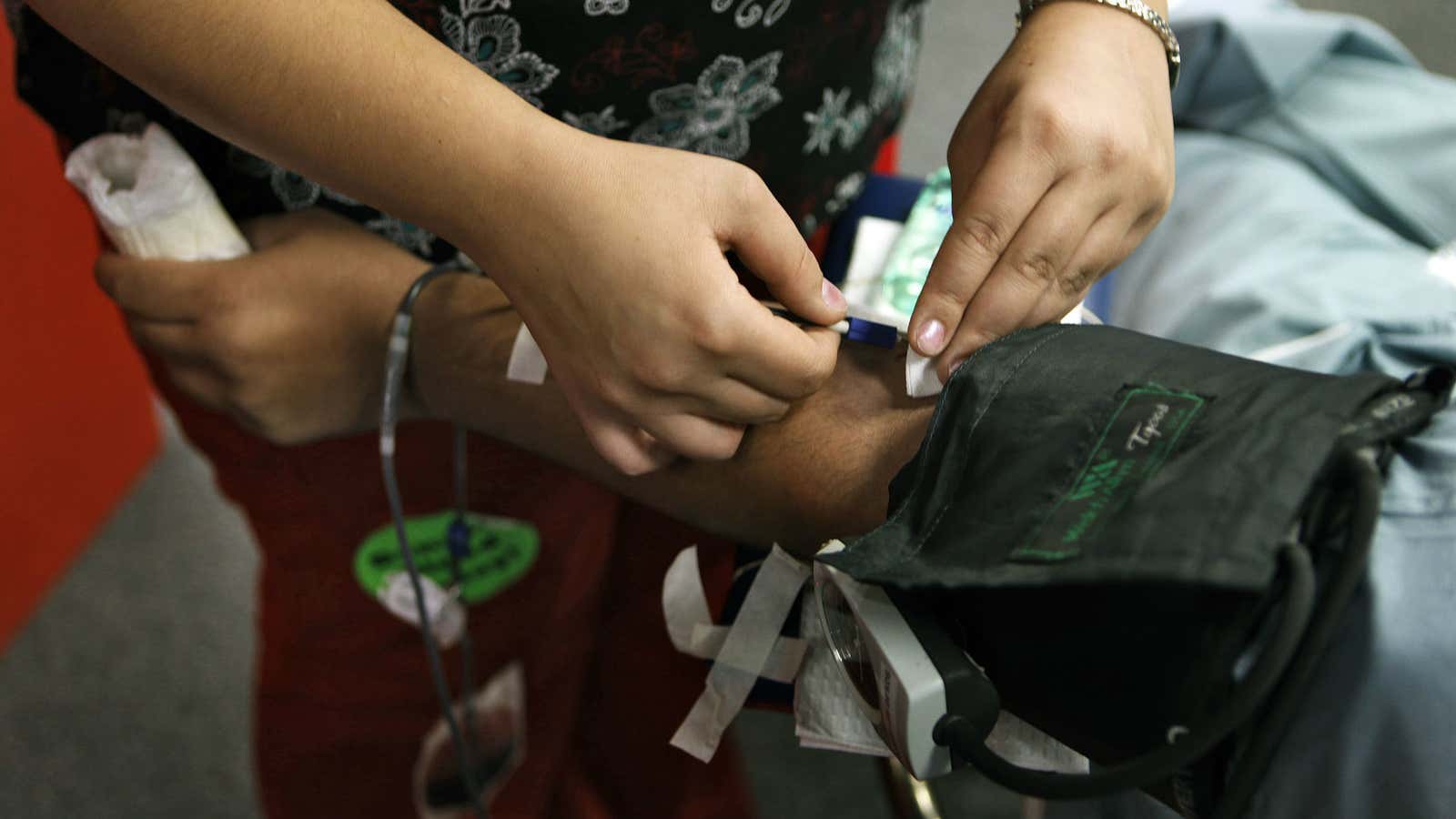Public health officials in Orlando, Florida are calling for blood donations after the deadly nightclub shooting that claimed an estimated 50 lives.
The attack occurred at Pulse, a venue catering to the LGBT community. Yet many gay men who may feel especially drawn to help the victims will be barred from donating blood, under rules criticized by rights groups.
Under a recently revised policy, the US Food and Drug Administration recommends refusing blood donations from men who have had sex with other men in the last 12 months. That’s been on the books since December, when the US lifted a lifetime ban on blood donation from men who had any sexual contact with another man since 1977.
Britain swapped a lifetime ban on gay blood donors for the 12-month abstinence rule in 2011. Australia has a similar policy limiting blood donation to men abstinent for a year.
The US ban on gay male blood donors was instated in 1983, when fear of AIDS was high and access to solid, research-backed information on the disease was low. Blood banks and LGBT rights groups have spent the last 10 years lobbying to change that rule, arguing that it discriminates against gay people and diminishes the country’s potential blood supply without scientific justification.
The FDA’s policy is a recommendation to blood banks, not a legally binding rule. The OneBlood blood bank network announced that it is accepting donations from gay men in the wake of the violence at Pulse.
Continuing to ban all male donors who have had sex with men in the last year, protected or not, is still essentially a ban on gay men. The American Red Cross’s eligibility questionnaire theoretically allows a heterosexual person who has had recent unprotected sex with multiple partners to donate blood, but not a man in a long-term monogamous relationship with another man.
The FDA argued last year that data showed that HIV infection was “significantly higher” among men with multiple male partners than among people with multiple partners of the opposite sex.
The new policy still falls short of fairness, rights groups argue. “It continues to stigmatize gay and bisexual men,” said David Stacy, Government Affairs director for the Human Rights Campaign, after the rule change last year. “It simply cannot be justified in light of current scientific research and updated blood screening technology.”




